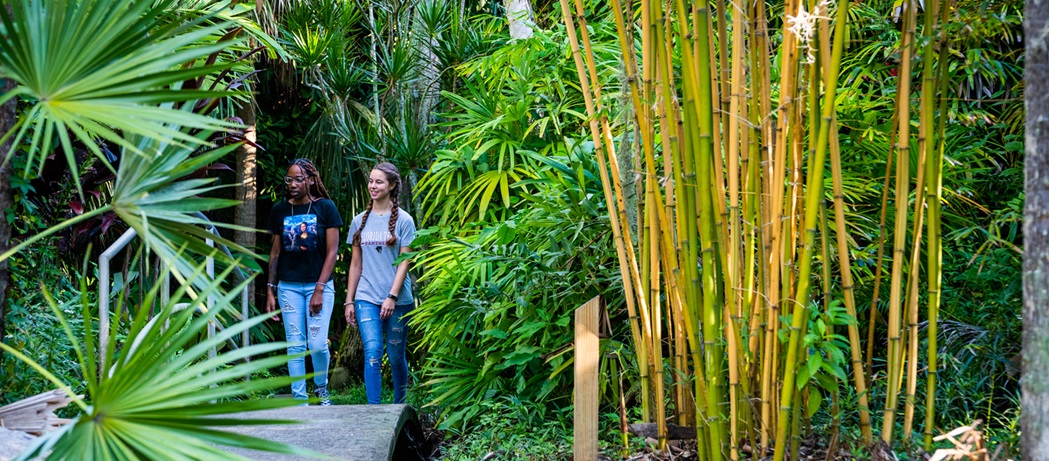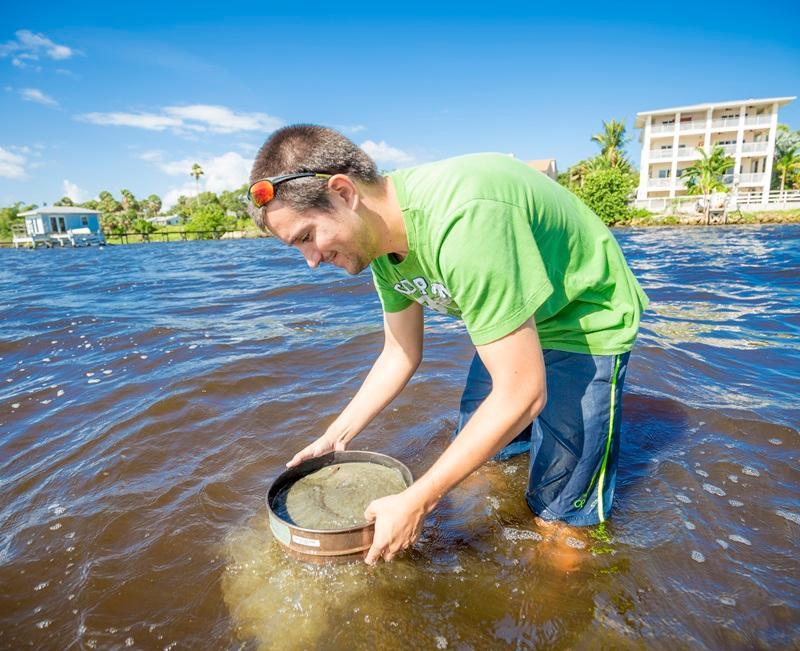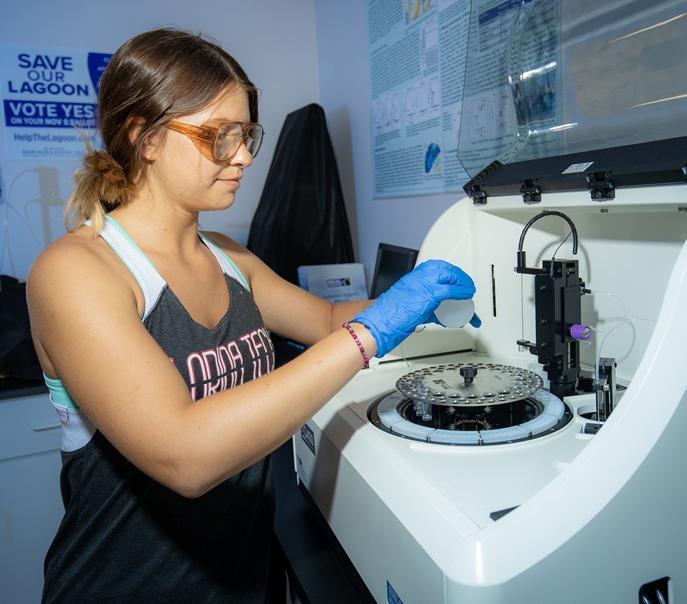Extraordinary Campus Environment
Florida Tech is located minutes from the Indian River Lagoon and just over the causeway from the Atlantic Ocean, but you don’t even have to leave campus to explore biodiverse ecosystems and enjoy the beauty of nature.
The 15-acre Joy and Gordon Patterson Botanical Garden is at the heart of campus. It features woodlands, ponds, and wetlands that provide vital habitats for an astonishing diversity of plants and animals.
Established in the 1960s by Founding President Emeritus Jerome P. Keuper, it has become one of the most unique campus botanical gardens of its kind. Also called “the Jungle,” the mission of the Patterson Botanical Garden is to preserve and maintain the beauty of the natural garden hammock as a peaceful place for wellness and inspiration for the campus community and its visitors.
You’ll often find students in the gardens, strolling along the paths, observing wildlife or simply enjoying some quiet time close to nature.


 Give to Florida Tech
Give to Florida Tech 



